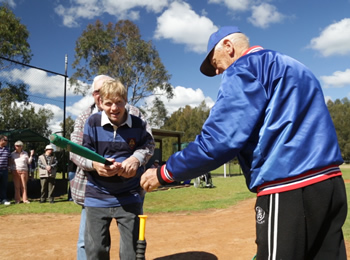Co-design in practice is guided by a set of six foundation principles which form the form the ABC of co-design. It is important that everyone involved, and health practitioners in particular, understands the foundation principles and are committed to them.
Foundation Principle #3 – C is for Collaboration and Partnership
The co-design process, at its most effective, involves a multidisciplinary, interagency group of health specialists and service providers working in active partnership with individuals with complex needs, their families and carers to improve health service delivery. Combining the experience and expertise of all parties benefits overall patient and family wellbeing.
 People with complex needs, and their family and carers, can provide expert insight into their care needs. Their lived experience is an invaluable asset when examining the viability of proposed care strategies. Consumers provide unique insights into many practical factors that determine the success or failure of service initiatives. Consumers are equal partners in the co-design process, and their views are greatly respected.
People with complex needs, and their family and carers, can provide expert insight into their care needs. Their lived experience is an invaluable asset when examining the viability of proposed care strategies. Consumers provide unique insights into many practical factors that determine the success or failure of service initiatives. Consumers are equal partners in the co-design process, and their views are greatly respected.
These collaborations require a flexible approach and a willingness to explore new ways of working. In practice, every interaction between a consumer and a health practitioner is a partnership, from individual face-to-face clinic meetings, to management committee meetings and service reviews. The feedback, opinions and ideas of both consumers and practitioners are essential to determine the most effective care strategies and systems.




